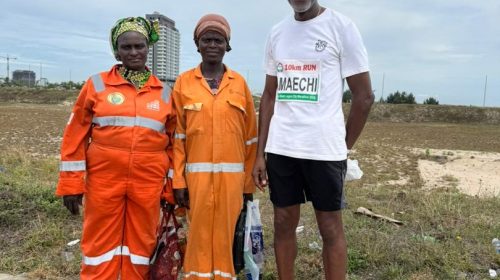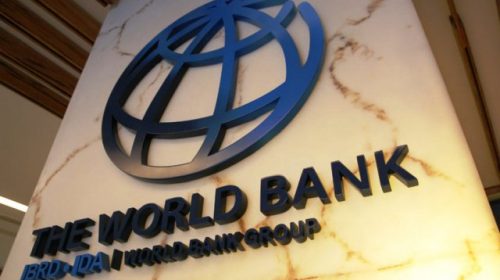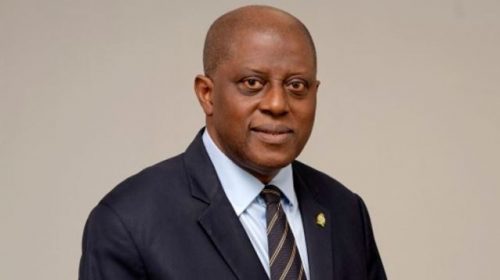Experts recommend private capital, as solution to infrastructure financing
By NGOZI Onyeakusi—

A herd of investment and finance experts over the weekend reached a consensus that the solution to inadequate infrastructure financing lies in private capital funding.
According to them, for the fact that governments have finance constraints, long-term funding that is independent of government budget and boards in an ongoing basis is required , if big ticket projects must be embarked upon and completed.
Speaking at the 2017 annual conference organized by the Finance Correspondents Association of Nigeria (FICAN), in Lagos, Acting Director General of Infrastructure Concession Regulatory Commission (ICRC), Engr. Chidi Kingsley Izuwah said that Private capital sanities corruption because nobody borrows to go and pay a bribe.
According to him, large transportation projects require ongoing investment amounts beyond the capacity of the Federal Government of Nigeria (FGN) and States in any single year, given competing priorities, adding that external funding sources are inevitable for long-term
As case studies have shown in India, Kenya, South Africa, and even Zimbabwe, Izuwah said Nigeria requires stable, multi-year funding mechanisms independent from annual fiscal constraints, “to catalyze long-term funding various sources: banks, contractors, pensions, donors, multilateral agencies and bond markets.
“PPPs cannot by themselves bridge the gap. Government spending needs to be more smartly deployed, to achieve the best value for money in any given project, e.g. through annuity payment contracts.”
He however said there are a number of major policy constraints to private investment inflows into infrastructure in Nigeria, broadly categorized into three areas namely: tariffs and regulations; public procurement approach and investment climate.
The ICRC boss further stated that Natural Gas monetization requires significant investment in prospecting, development, gathering, processing, production, transportation and delivery, as such, given the interdependencies in the value chain, highly specialized investors with strong appetite for onshore Nigeria risk are required. Similarly, mining requires significant prospecting, processing and transportation, all which requires lung-term funding.
According to him, private capital is a force for good, but a number of factors prevent Foreign Direct Investment (FDI) and cause diversion of capital to other countries where the investment climate is more favourable. Izuwah highlighted some of the constraints to include: government controlled tariffs which are disincentives to investment, just as incumbents limit scope for private sector participation; uncertainty, bureaucracy and opaqueness in contract bidding; preference for pay-to-build versus pay-for-service contract models; no transparency or due process in concession negotiations and awards; governments’ requirement for speed and haste to award contracts; lmited investment in project preparation by Ministries and Agencies; securing permits, contracts, agreements which are major hurdle for investors.
Political will, according to him, is key to ensuring appropriate tariffs across sectors and projects, adding that most sub-sectors are still not open to investment specially rail and roads .
His words: “Enhancing the investment climate and clearing roadblocks to investor entry is one major area where FGN can make a direct, near-term impact,”
Speaking on the topic: “facilitating infrastructure financing in Nigeria: ICRC perspectives,” the ICRC boss called on the media to collaborate with the commission in the battle to provide infrastructure in Nigeria.
He further made a number of punchy remarks: “We need a national infrastructure acupuncture plan. We need to choose the areas the to put the pin. If we are not careful, our factor endowment can become a problem. Our total broad money is 20 percent of our GDP. Government money is 20 percent of our GDP. When you combine logistics and lack of energy, your productivity goes south. A developed country is not where the poor has a car but where the rich use public transport. Time waits for no one, so the concept of African time makes no sense. Transforming Nigeria is doable.”
Because Project development cycle involves long lead-times for large power projects to be built, Izuwa believes that early results can be achieved from specific interventions, but overall policy framework needs strengthening for future inflows.
Enumerating the things that needs to be done attract private investment, the Chief Executive Officer, Rand Merchant Bank Nigeria, Michael Larbie said: “ Clearer legal and regulatory framework; improved and efficient competitive bidding procedures; consistent sector policies, (e.g.tariffs regimes, rule of engagement); Strengthened management of fiscal obligations and supportive regulatory environment are key.”
He opines that government should strive to allocate the risk to the party best able to manage it, while ensuring that Political risks are adequately covered.
“Government must build a track record of public private partnership (PPP) performance to attract large sums of long-term funding from pensions funds and insurance. “he added.
The Chief Executive Officer Viathan Engineering Limited, Mr. Ladi Sanni said that considering the fact that Nigeria needs about $100million annually to begin proper infrastructure financing , which the government alone cannot provide, amidst concerns around political risk. He added that among other areas, the government needs to ensure that the judiciary understands that requirements of infrastructure financing.
Sanni said, “Part of the problem we have in Nigeria is contract sanctity. The Judiciary has a role in interpreting the legal framework for POP. Government needs to demonstrate that private investors can go onto long term investment with them. Government bonds limits investment into high risk power project. We would like government to look at the issues of infrastructural bond.”







Leave a Reply